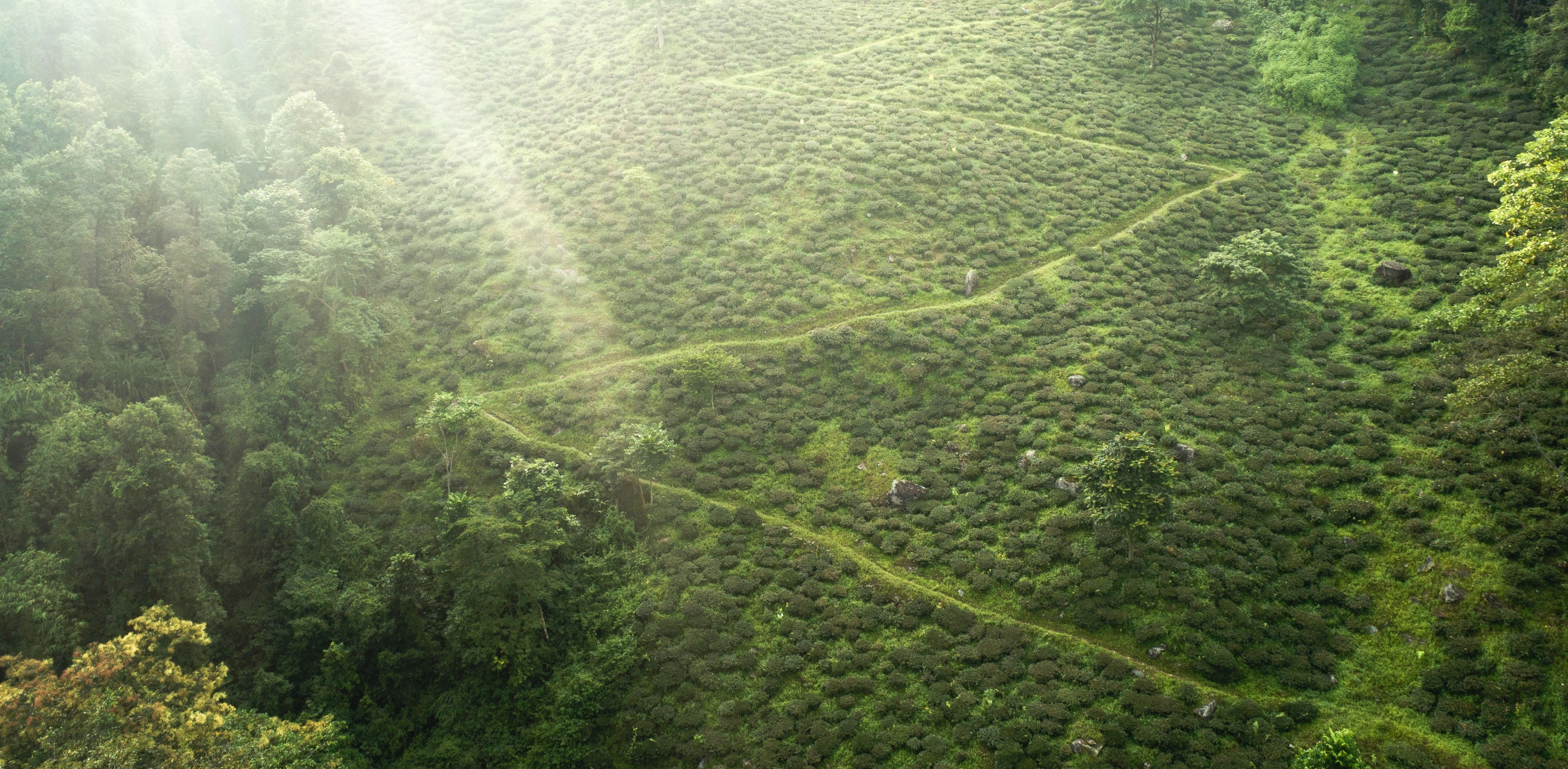Makaibari Tea Estate: A Legacy Rooted in Rainforest and Biodiversity
A life-long endeavour that keeps living and giving

A RARE ECOSYSTEM
SUB TEMPERATE RAINFOREST
While Makaibari is in a temperate clime, the nearest airport Bagdogra has a tropical climate and Sandhakphu, an hour uphill at 5000 meters is alpine –arctic.
Makaibari is the steepest tea garden in the district of Darjeeling. It faces drought conditions every year due to the hot march winds that sweep up from the scorching plains of Bengal. The retention of the primary forests of Makaibari , have been born out of need of conservation.
Unlike other tea estates, Makaibari, does not have any springs at the highest point. The march winds exacerbates the drought during first flush and the monsoons causing immense erosion on the steep slopes where tea is grown.
The woodlands and permaculture practices have prevented irreparable damage, by providing windbreaks and contributing as a natural source of free mulch, in perpetuity, across the entirety of the plantation which are islands in a sea of natural forests.
The community and tea are a part of the six-tier permaculture evolution of Makaibari, which is a working window of certified
Community Forest management (CFM) system.
BIODIVERSITY
A rare eco-system with a diversity of flora and fauna, the Makaibari forests is the key to Darjeeling’s ecological diversity.
This creates a unique biotope with a diversity of flora and flora unmatched elsewhere globally. The biodiversity compressed in this
small biotope makes it a dream for naturalists , botanists, ornithologists.
The strategic location of Darjeeling, which is a virtual gateway to Nepal, Sikkim, Tibet, and Bhutan, also makes it an important cultural hub. This, coupled with the ethnic diversity of its residents offers a unique melting pot, an exclusive window of harmony in diversity.
At Makaibari, over twenty varieties of bamboos grow, together with a plethora of endangered species both in the plant and animal kingdom.
Our forests are home to Bengal tigers, leopards, deer, boar, monkeys, reptiles, and over 300 bird species-with the Pied Hornbill (Buceros bicornis) ruling the roost. Insects are at home, and the garden’s proud is the “Tea Deva”, the mimetic insect (Phyllium bioculatum) that looks like a tea leaf, first sighted in 1990 at Makaibari.